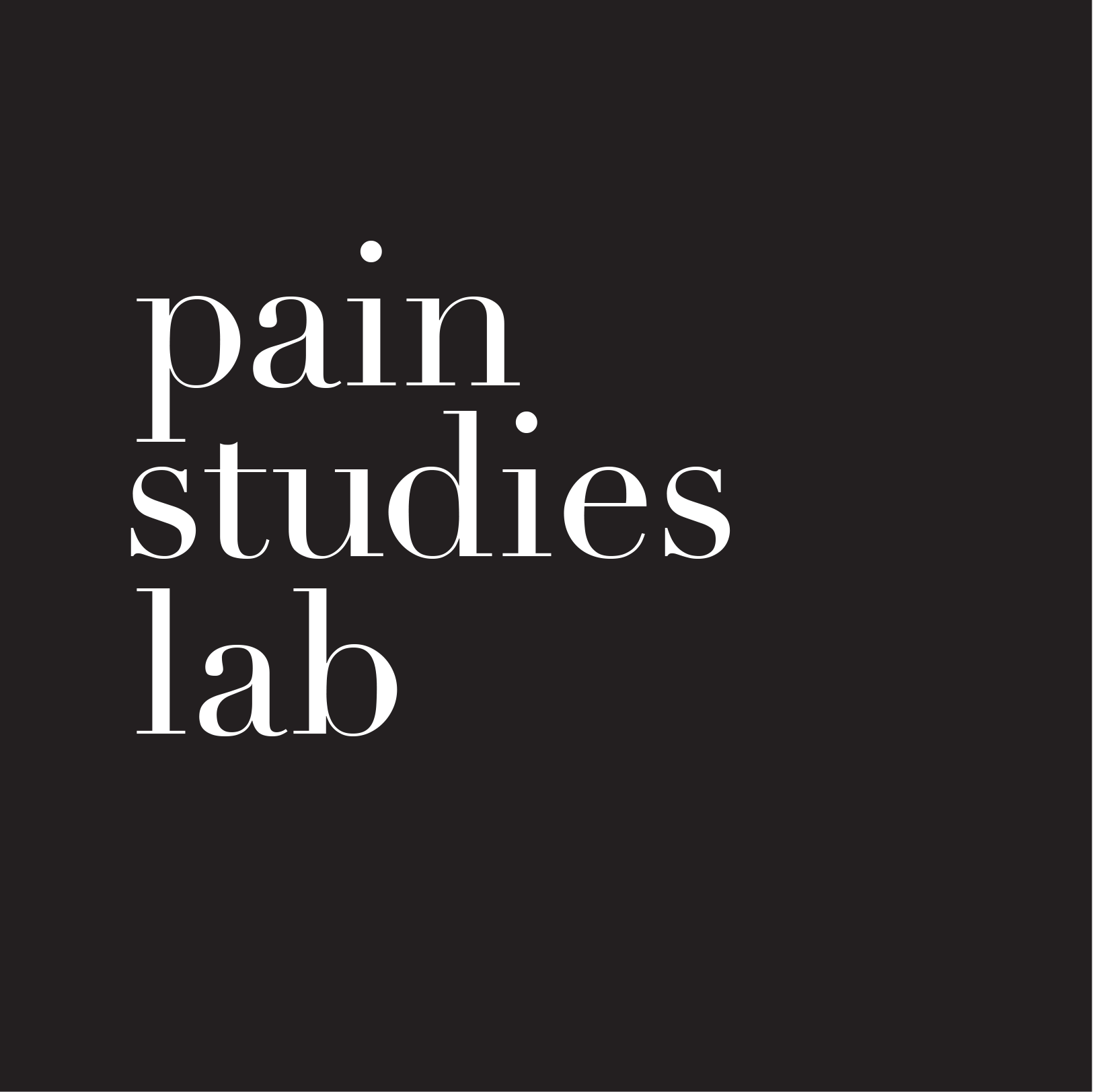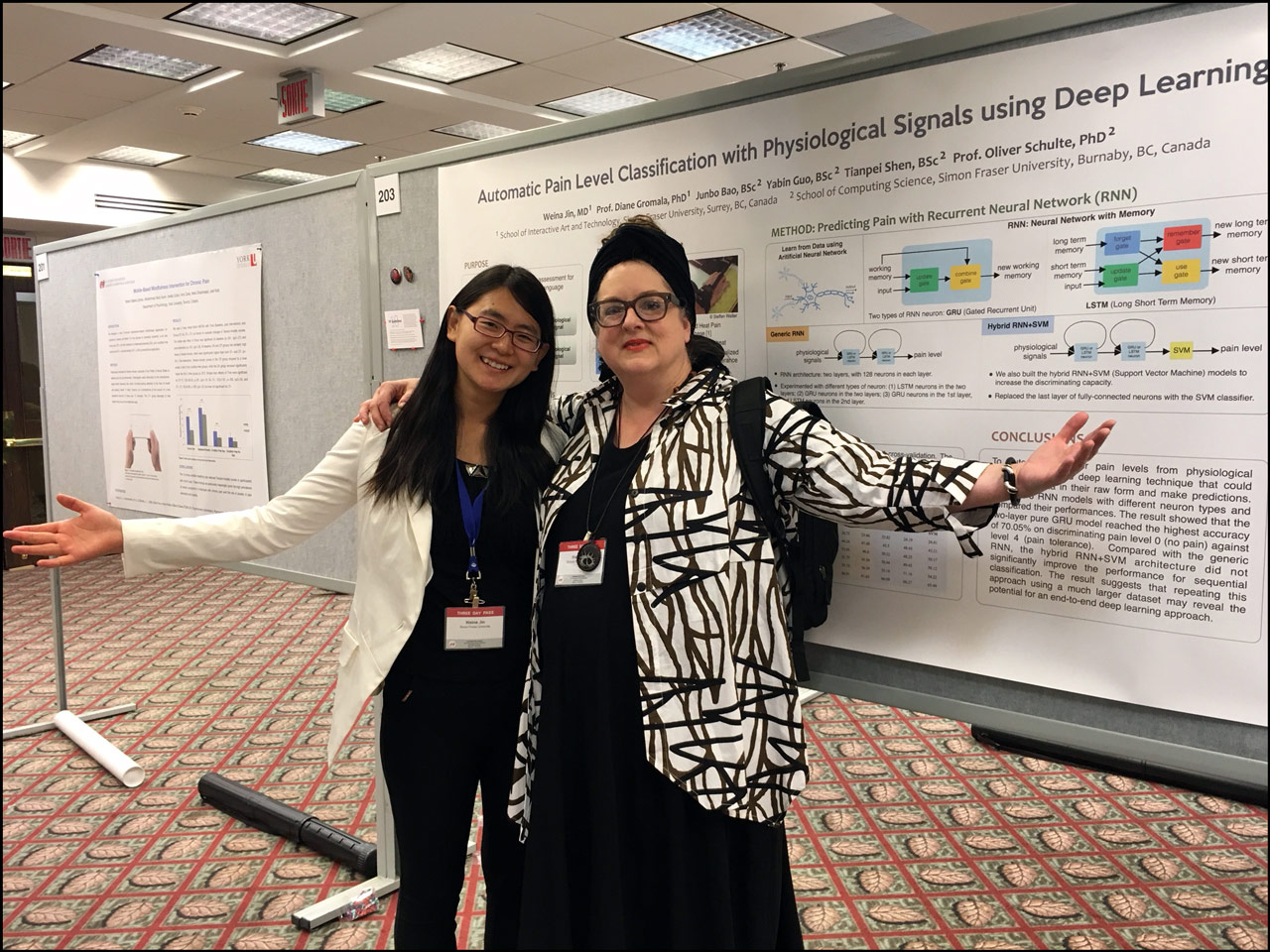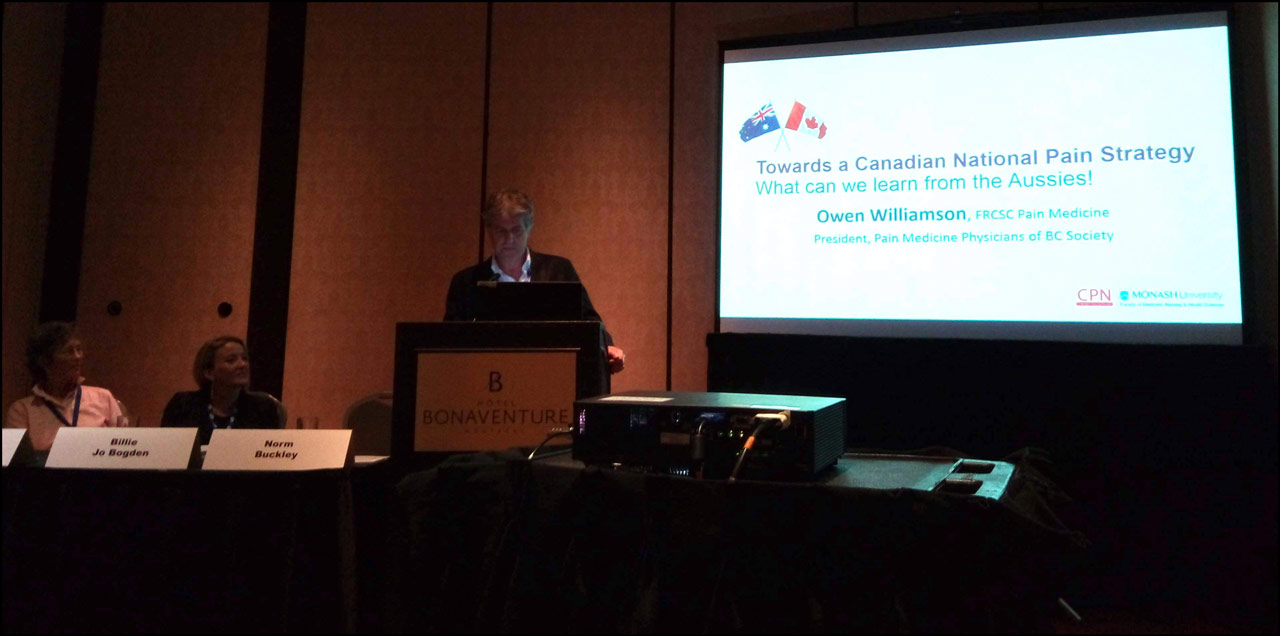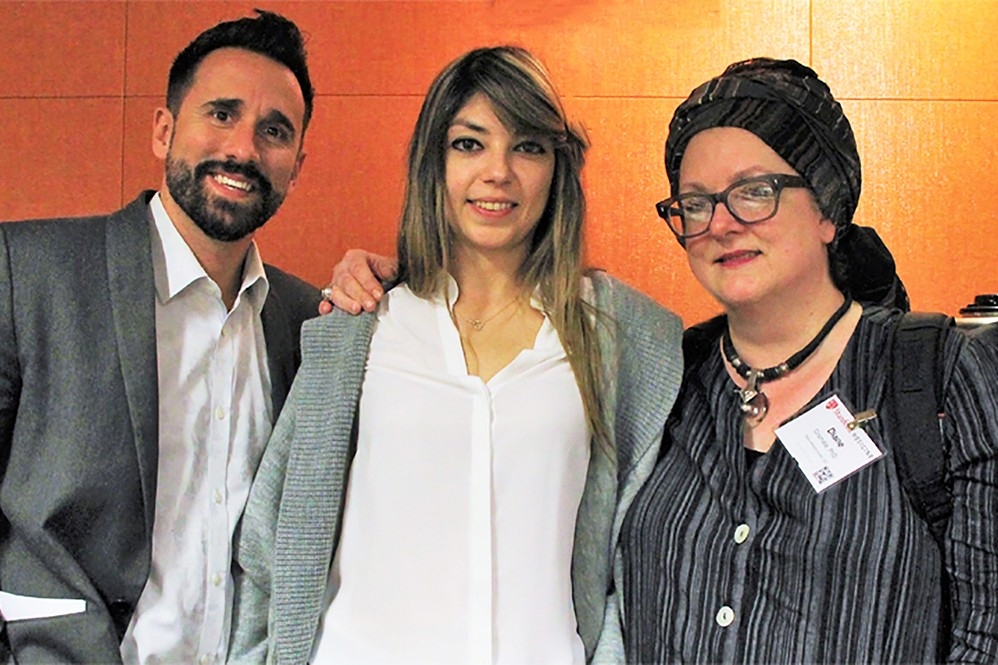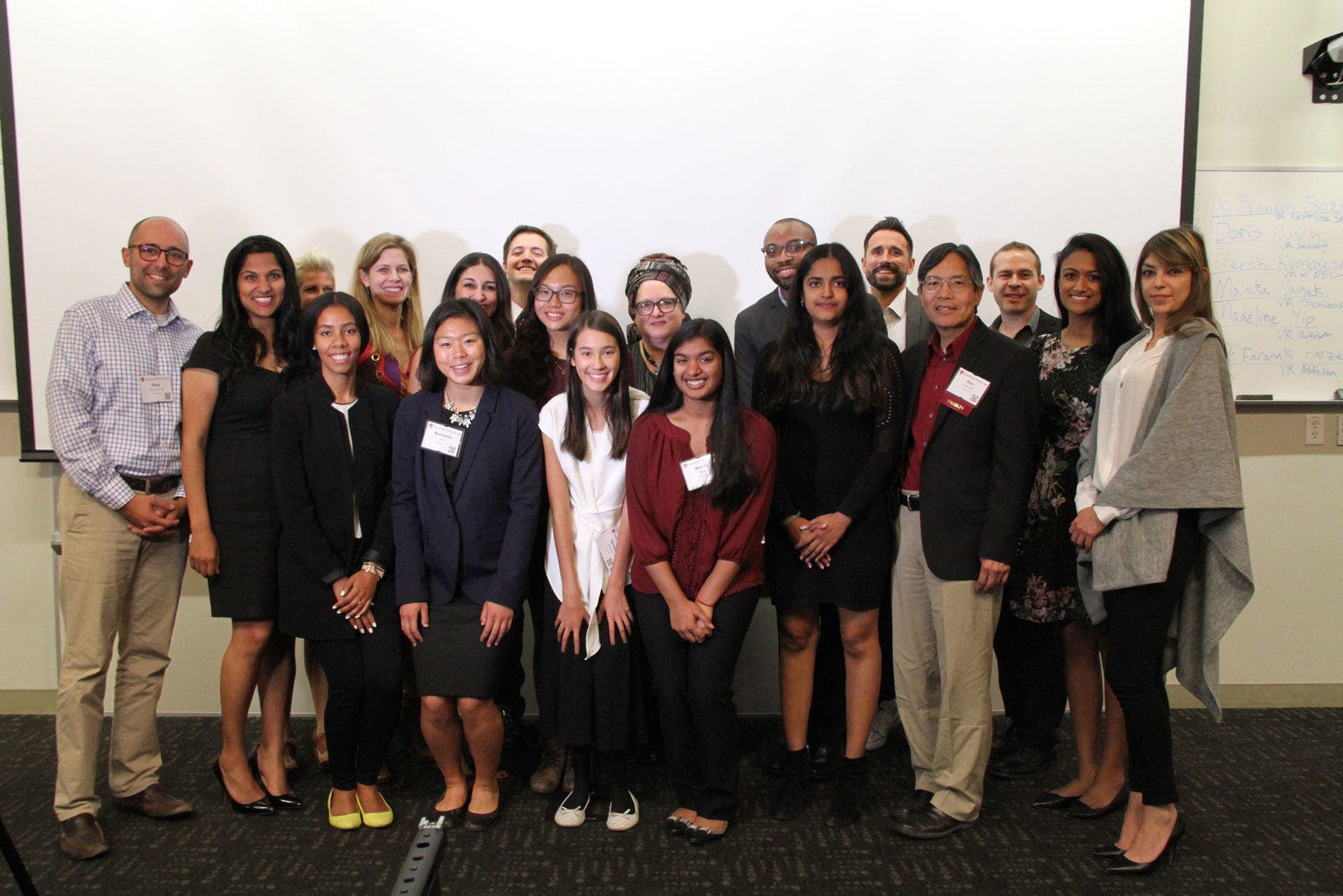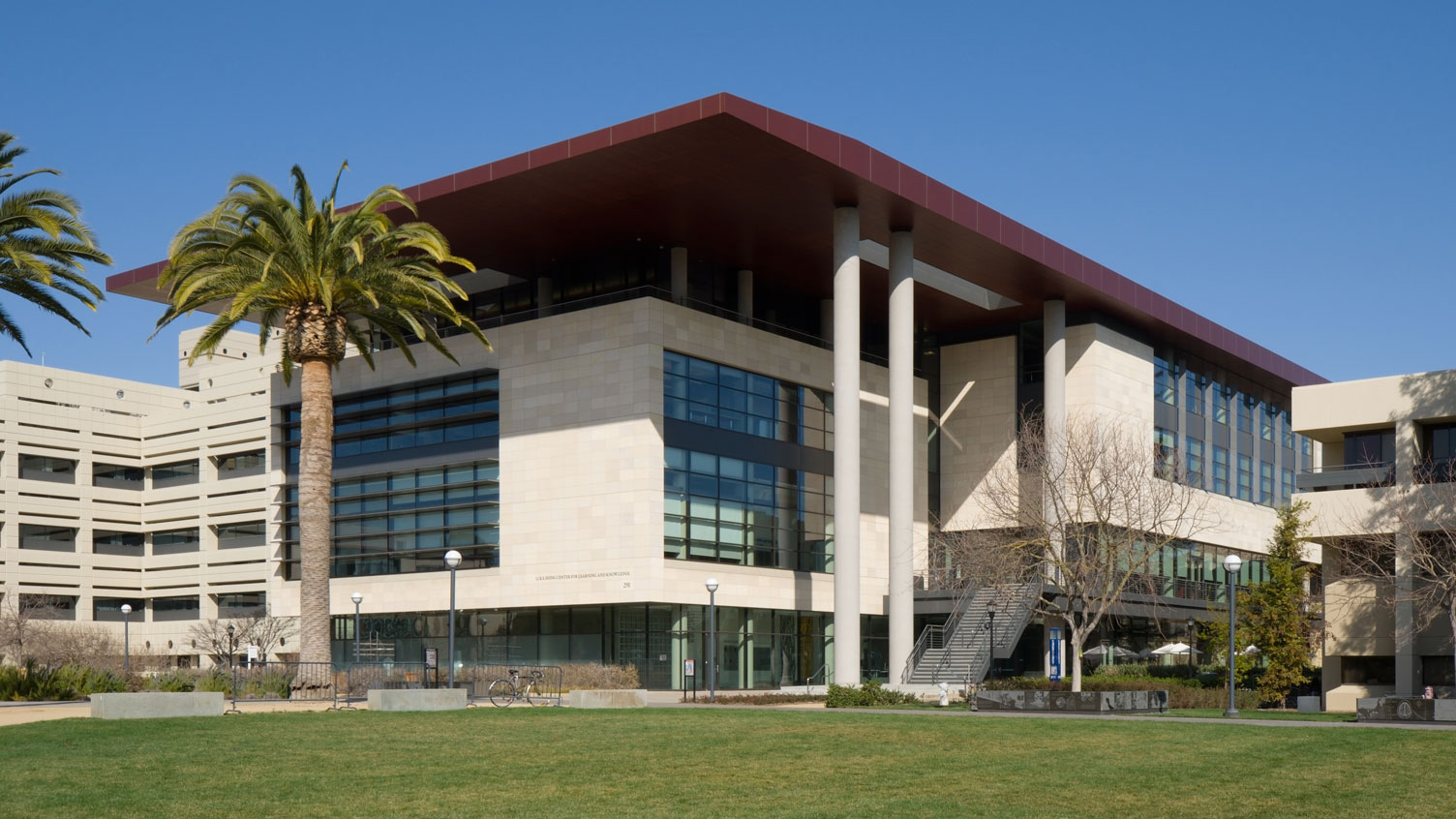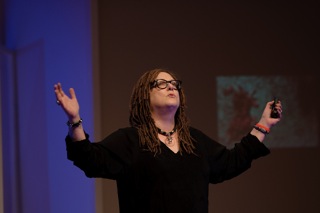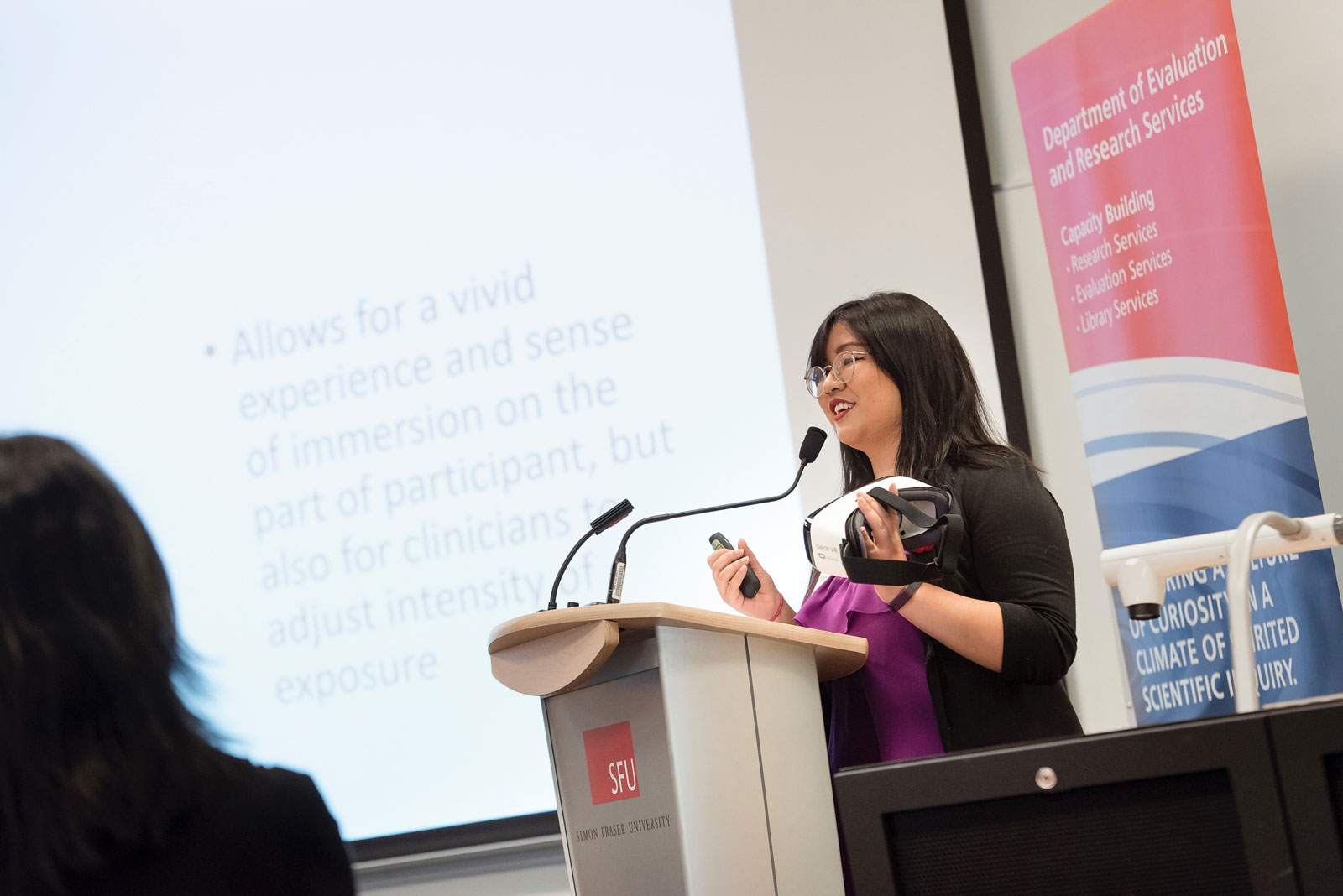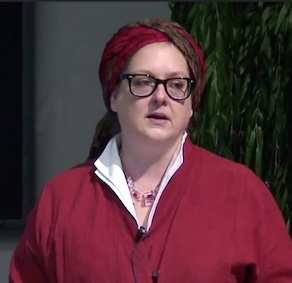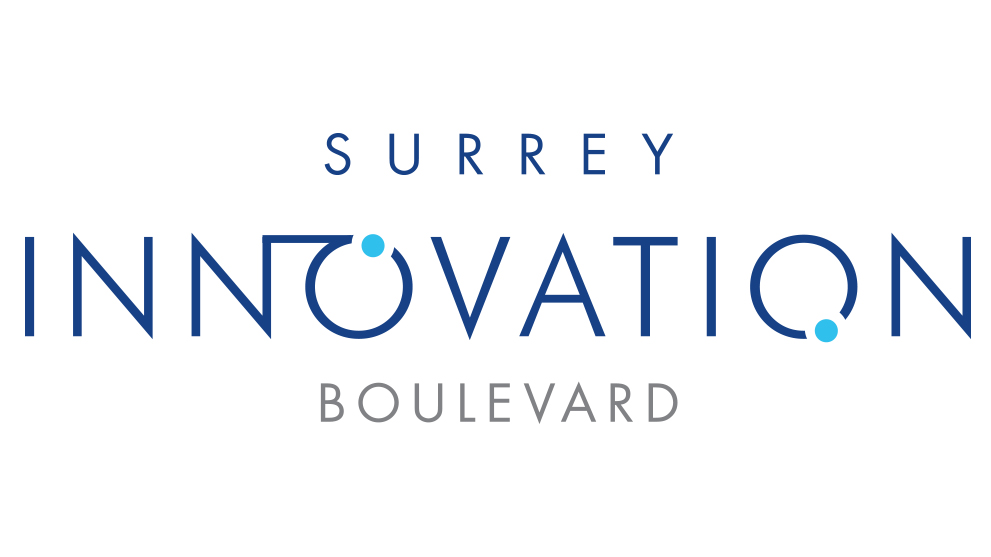
Xin Tong, one of the lab’s Ph.D. students, is conducting her dissertation research in Peking University’s Motor Control Lab with Dr. Kunlin Wei, one of the top brain and cognition scientists in China.
Xin’s research is mainly about
- identifying the major factors in Virtual Reality (VR) that affect pain perception, and
- how to use Virtual Reality to help chronic pain patients to better manage their pain.
Her studies focus on the sense of body ownership, the sense of body agency, and the senses of controllability, movement and physical activity in VR, and how they may influence pain perception in both healthy participants as well as pain patients. Eventually, she plans to apply those research findings and scientific results to the lab’s VR.
Currently, Xin is working with pain patients who live with Complex Regional Pain Syndrome (CRPS), as shown in the picture below. This patient has experienced CRPS-related pain for over four years in his feet and hands. Before using the VR environment, the patient he rated his pain level as a 10 — almost always, and almost everywhere in his hands and feet. After engaging with the Pain Studies Lab’s VR title LumaPath for around 20 minutes, the patient rated his pain level to be 8, which lasts for a short period.
Although this result occurred after only one “dose” of VR, the result was significant, particularly because this patient’s pain is unrelenting. Therefore, over the next 8 to 10 weeks, Xin will follow up with a group of pain patients to measure the effects of using VR over time, and to see if those effects persist.
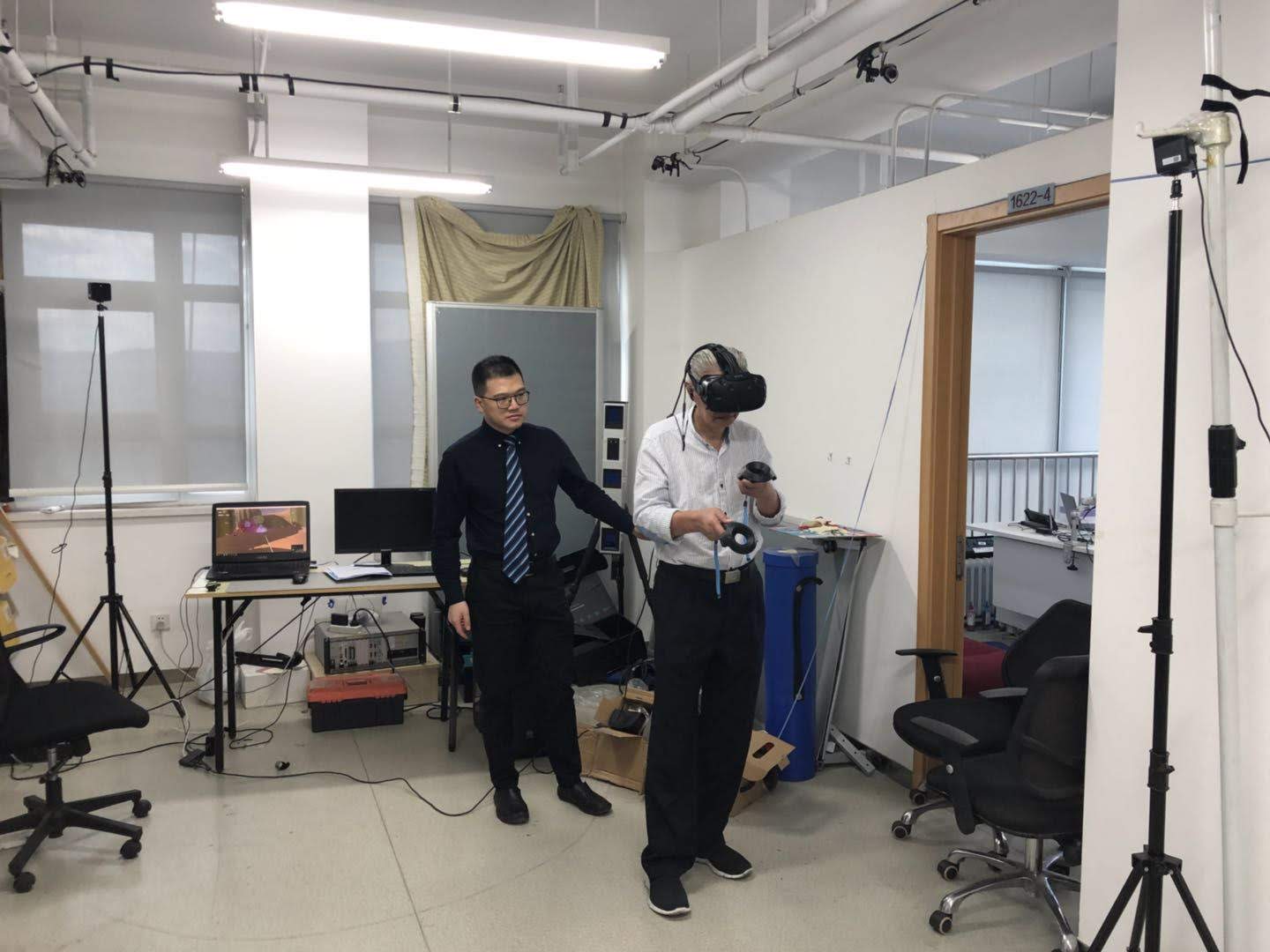
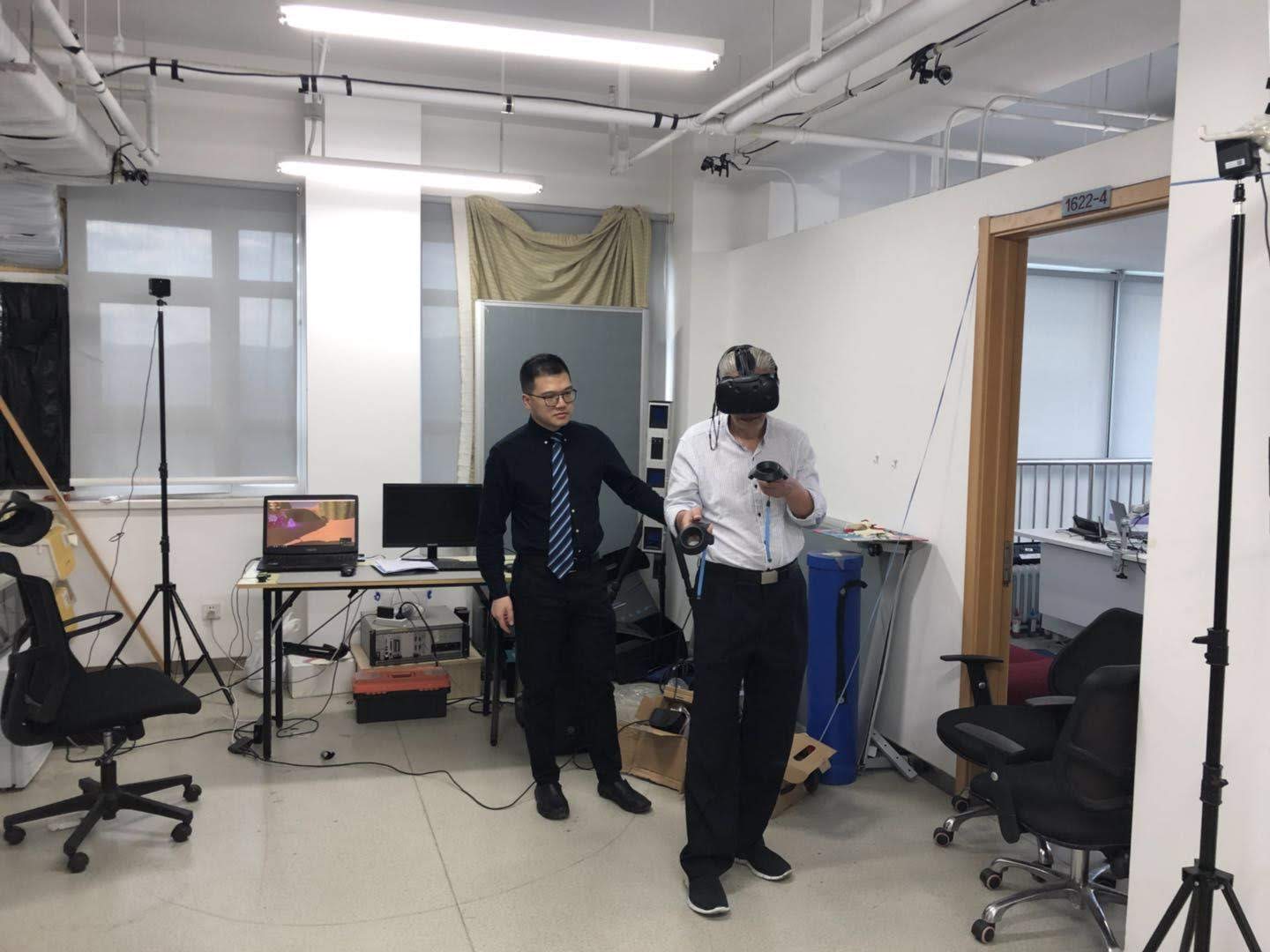
Pain patients with unrelenting Complex Regional Pain Syndrome (CRPS) using Pain Studies Lab’s Lumapath, an immersive VR environment specifically designed for chronic pain patients. Ethics and permission to use these photos were granted.
